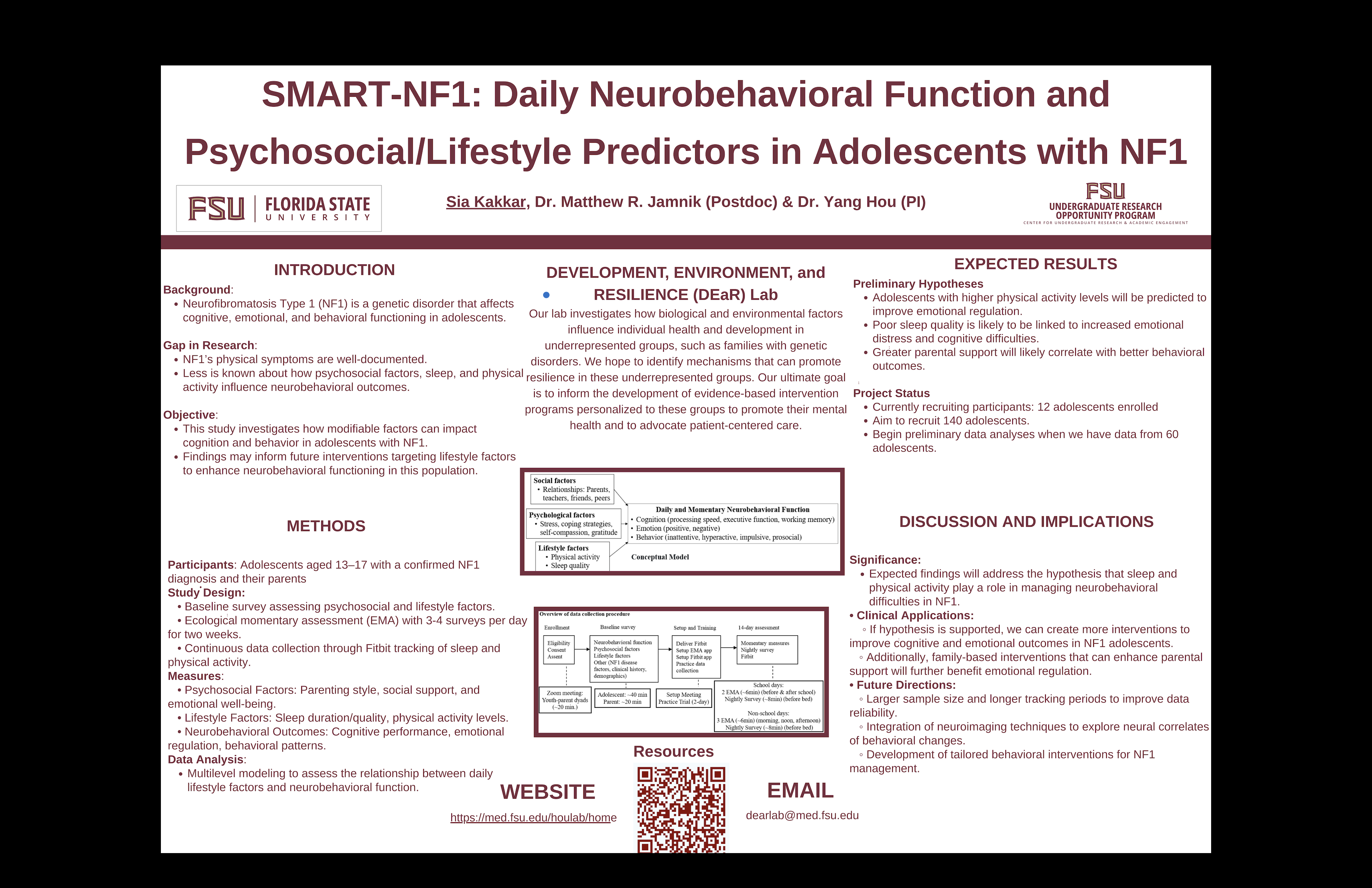Research Symposium
25th annual Undergraduate Research Symposium, April 1, 2025
Sia Kakkar Poster Session 2: 10:45 am - 11:45 am/ Poster #249
BIO
I am from Orlando, and my love for neuroscience, psychology, and mental health advocacy drives everything I do. My research interests focus on neurobehavioral function, trauma recovery, and the cognitive effects of eating disorders.
Beyond academics, I stay active through tennis and running, which fuel my curiosity about the mind-body connection. My family is my greatest support system, and their encouragement has shaped my passion for helping others. I am also deeply passionate about animals and have dedicated time to volunteering at shelters. One of my long-term dreams is to start my own animal shelter once I have the resources to create a safe haven for animals in need.
As a mental health advocate, I aim to connect neuroscience and psychology to improve patient outcomes. My goal is to pursue medical school and contribute to advancements in psychiatry or neuroscience while continuing to support mental health awareness, research, and community initiatives.
SMART-NF1: Daily Neurobehavioral Function and Psychosocial/Lifestyle Predictors in Adolescents with NF1
Authors: Sia Kakkar, Yang HouStudent Major: Computational Biology
Mentor: Yang Hou
Mentor's Department: Behavioral Sciences and Social Medicine Mentor's College: College of Medicine Co-Presenters:
Abstract
Neurofibromatosis Type 1 (NF1) is a genetic disorder associated with cognitive, behavioral, and socioemotional difficulties, yet research on how these challenges affect daily neurobehavioral functioning remains limited. This study examines these functions in adolescents (ages 13–17) with NF1 using ecological momentary assessment (EMA) to collect real-time data on behavior, mood, and cognition. We hypothesize that parenting style, social support, coping strategies, physical activity, and sleep quality will significantly influence cognitive and socioemotional functioning. Participants will complete online surveys, daily assessments via a smartphone app, and wear a Fitbit activity tracker for two weeks.
As a research assistant, my role includes data collection, participant communication, and survey administration. We expect findings to show that higher social support, increased physical activity, and better sleep quality correlate with improved cognitive and socioemotional outcomes.
A key strength of this study is its real-time data collection, reducing recall bias and providing a more accurate picture of daily challenges. However, limitations include self-report bias, limited generalizability due to sample size, and potential noncompliance with daily assessments. Findings will contribute to a deeper understanding of NF1-related challenges and inform targeted interventions to improve adolescent well-being.
Keywords: **Keywords:** Neurofibromatosis Type 1, Neurobehavioral Functioning, Ecological Momentary Assessment

